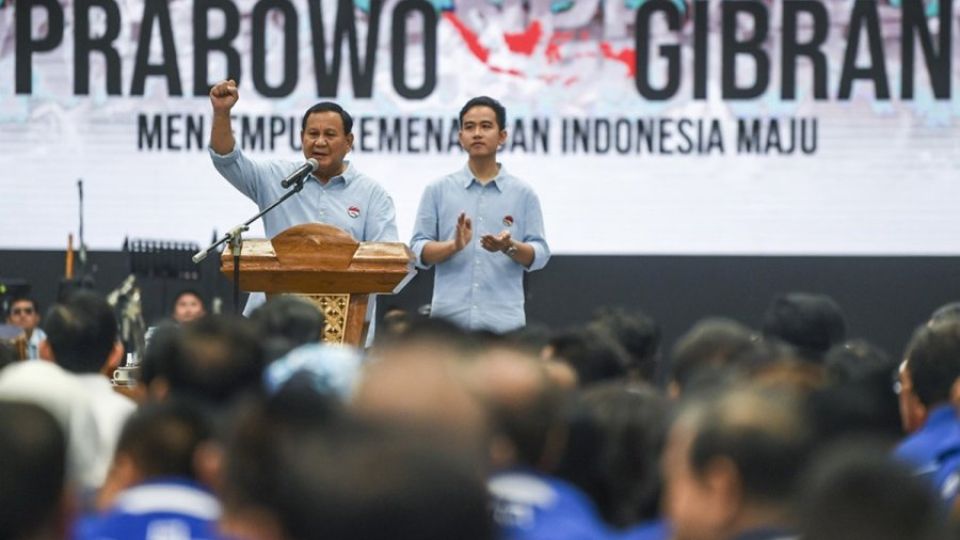October 27, 2023
JAKARTA – The dust had barely settled from the fallout of the controversial Constitutional Court ruling that changed the Elections Law in favor of President Joko “Jokowi” Widodo’s son Gibran Rakabuming Raka, when on Wednesday Gerindra Party chairman Prabowo Subianto registered himself to run in the 2024 presidential election.
Standing by his side of course was the 36-year-old Gibran, who after a week of back-and-forth between leaders of political parties in the ruling coalition, was finally inducted as vice-presidential pick for the 72-year-old Prabowo.
The pairing could not have been more incongruous, but parties in the ruling coalition obviously think that this is their best shot at winning next year’s presidential poll.
With the Prabowo-Gibran ticket finally registering on Wednesday, the race to replace the incumbent President—who is barred from running for a third term but has been adamant in playing a kingmaker role—now begins to take shape.
Also now more than 204 million registered voters in the country can finally assess the pros and cons of their preferred candidates, however limited their options.
The options could have included more interesting and colorful tickets, but power brokers and political parties certainly think that three pairings of all Javanese men mostly in their fifties are what voters want in next year’s presidential election.
Many could certainly argue that Mahfud MD, the running mate of Indonesian Democratic Party of Struggle (PDI-P) presidential candidate Ganjar Pranowo, should be seen as a non-Javanese representative, given his Madura roots, but Mahfud cut his teeth as a law professor in the heartland of Javanese culture in Yogyakarta, before entering politics in the late 1990s.
Many also could also argue that former Jakarta governor Anies Baswedan, due to his Middle Eastern roots, does not fit that mold, but he grew up at the epicenter of Javanese culture in Yogyakarta, where he went to middle school before enrolling at Gadjah Mada University (UGM). In fact, Ganjar and Mahfud, like Jokowi, are also alumni of UGM.
With more than 102 million women voters making up almost 50 percent of the total number of registered voters in next year’s election, fielding a female candidate would certainly have looked like a winning strategy for any coalition.
Yet, this expectation was dashed long before the political parties registered their tickets this month.
The only female politician who was seriously considered was East Java Governor Khofifah Indar Parawansa, a skillful administrator who was considered as running mate for either Prabowo or Ganjar, but gained traction only for her potential ability to bring in Nahdlatul Ulama (NU) votes.
The decision to pick Gibran as VP candidate was made with younger, Gen-Z and millennial voters in mind. After all, these age groups make up more than 30 percent of registered voters.
But we can certainly argue that there are more people who are better qualified to represent the younger generation of voters than the son of an incumbent President who will not only benefit from his father’s high approval ratings, but also from the actual marshaling of government resources.
And it is this power of incumbency that should worry us all.
When asked if he would set up a political dynasty in the country in the wake of the Constitutional Court ruling earlier this month, President Jokowi said that it would be up to the people to decide whether or not they would vote for Gibran next year. Now, Gibran himself has repeated the same talking point. (Prabowo himself has upped the ante by saying that there is nothing wrong with building a political dynasty as long as it is aimed at building the nation).
But the problem is that not only in terms of gender, policy and demographic group will voters have limited options next year, it is very likely only one ticket will get the benefit of the incumbency.


